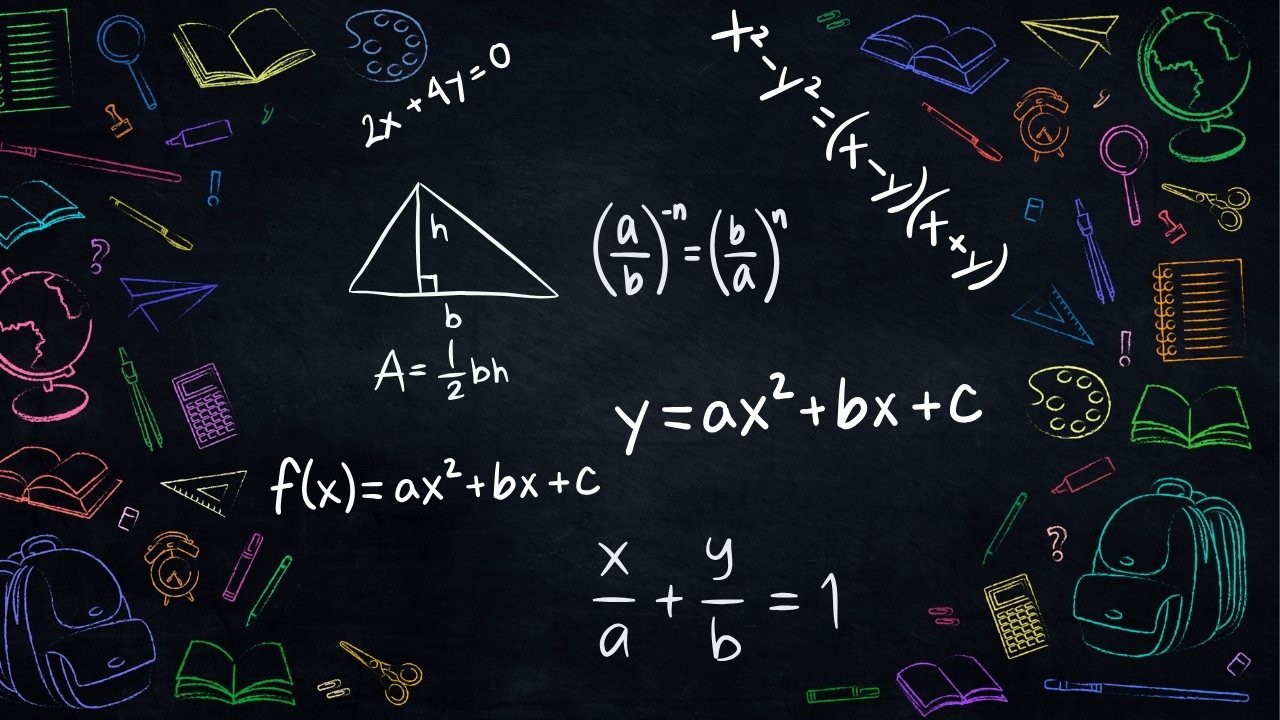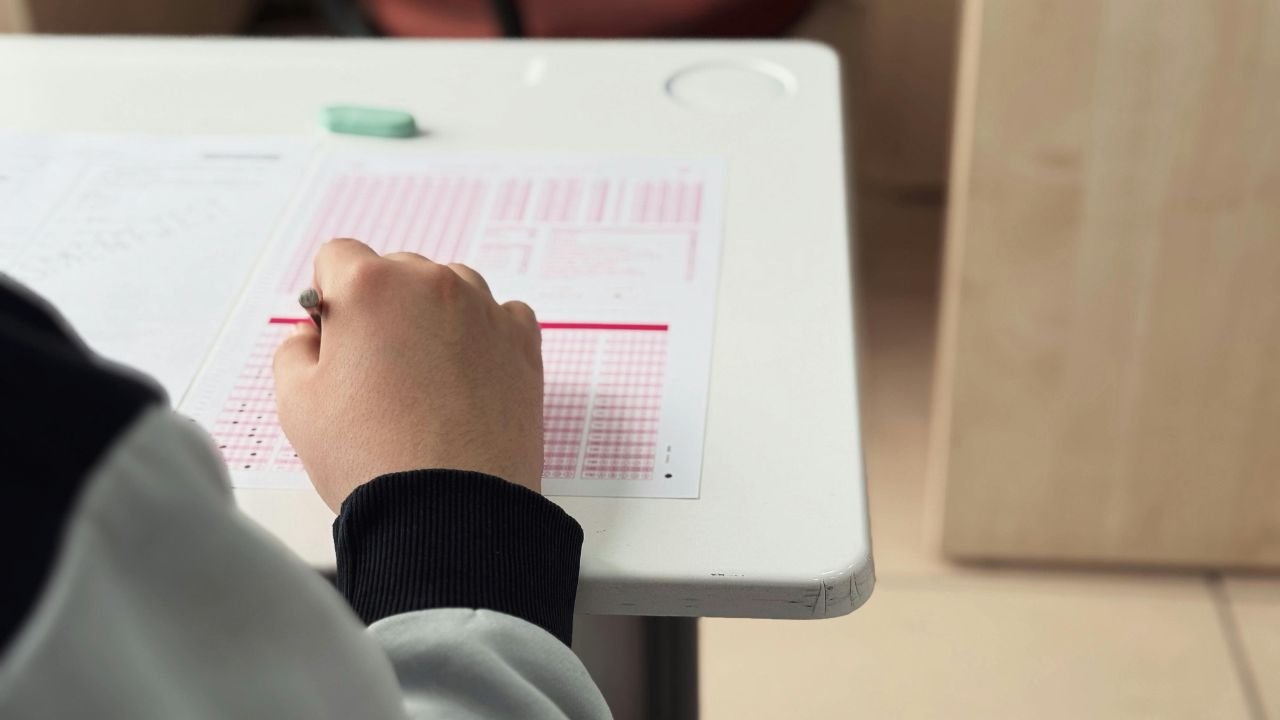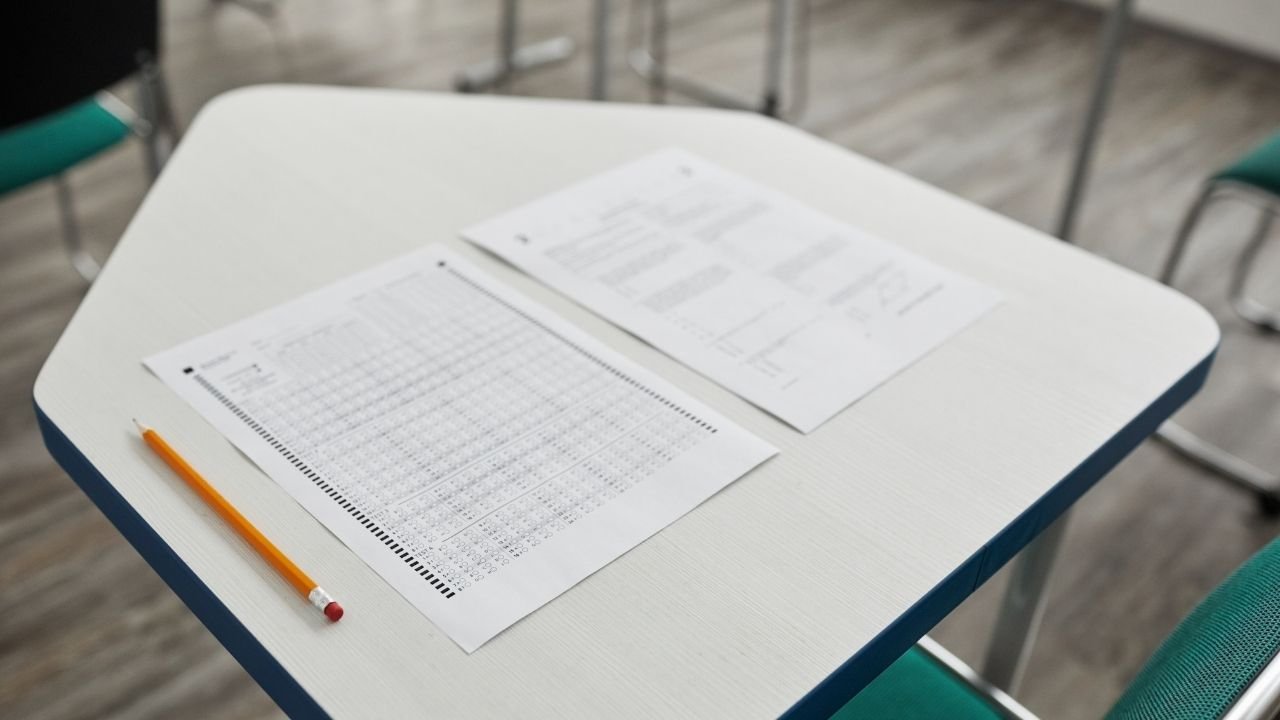Students who have to prepare for advanced-level mathematics often ask Is algebra hard? Because they come across a problem that cannot be solved with just rote memorization.
Algebra fills the gap between basic arithmetic and advanced mathematics. Students get introduced to the symbols, manipulations, variables, and equations rather than relying solely on numbers. Students get surprised when they switch from concrete arithmetic to abstract reasoning. In algebra, students have to interpret patterns, generalize rules, and use logic at the same time. Read below to understand why algebra feels difficult to create and devise effective learning strategies.
Students first encounter these ideas in Elementary School Algebra and expand them through Middle School Algebra, before mastering abstract reasoning in High School Algebra.
6 Reasons Why Algebra Can Be Hard!
Algebra in general feels hard, but there are some solid reasons why it is considered hard for many students.
1. Abstract Thinking Requirement
Algebra introduces concepts such as variables, unknowns, and functions. They have to guess the value of the symbols introduced to them, which is unknown, and this makes students struggle with this concept. Regular arithmetic relies on solid numbers; algebra asks reasons with unknowns. This cognitive leap can feel intimidating and confusing.
2. Dependence on Foundational Skills
Many students having lack clear knowledge about foundational mathematics may also find algebra hard. If they are asking, Is algebra hard, they should know if they have a clear idea about arithmetic, fractions, negative numbers, or order of operations. A lack of strong base skills may cause frustration even with simple algebraic equations.
3. Multi-Step Problem Solving
Algebra problems often require multiple steps to reach a solution. Students must plan the solution path, maintain accuracy, and manage intermediate results. Each step builds on the previous one. Missing one step may result in consistent errors, which often result in the perception that algebra is hard. his skill becomes even more essential in standardized tests like the ACT Math and SAT Subjects, where algebraic reasoning plays a key role in solving multi-step questions
4. Symbol Manipulation Challenges
Another reason why students ask Is algebra hard? is working with symbols. Unlike regular math equations, where you have to deal with numbers, algebra demands precision and flexibility. Misinterpreting a variable or misapplying a rule will result in repeated mistakes. Students who rely heavily on memorization often struggle because algebra rewards understanding over mechanical calculation.
5. Cognitive Load and Anxiety
Practicing algebra will introduce the students to a high cognitive load. Students manage multiple operations, abstract concepts, and problem-solving simultaneously. If you have problem-solving anxiety when thinking about the question, then mistakes are inevitable, which increases the difficulty even more. Students often ask, “Is Algebra hard?” when they feel overwhelmed by complex steps or fear failure.
6. Limited Real-World Context
Algebra may also feel out of the world because of its non-linear existence in students’ daily lives. When students are not able to relate equations or functions to tangible examples, motivation declines. Real-world application helps clarify abstract concepts, yet many classrooms underemphasize these connections.
These are the top reasons that make algebra hard for many students. It shows the complexity of the subject is not with the subject, but how students interpret an algebraic problem.
Your success story begins with us!
We are here for you! Schedule a call with our consultant for personalized advice on achieving your learning goals

How to Learn Algebra Efficiently?
Algebra may be hard to learn, but not impossible. You need to aim for a structured schedule and work on your basic concepts about arithmetic. There are some even better tips to follow.
1. Strengthen Core Foundations
Before working with the algebraic equations, make sure you have a good knowledge of arithmetic operations, fractions, decimals, and negative numbers. Students can strengthen these basics through structured lessons in Middle School Algebra and High School Algebra. Students at Ivy Test Prep benefit from structured exercises that reinforce these skills. We focus on building a solid foundation to reduce cognitive load when solving complex problems.
2. Embrace Step-by-Step Problem Solving
Students should learn about breaking down problems into smaller steps. They can maintain the clarity by labeling intermediate results, drawing diagrams, or annotating equations. The stepwise reasoning reduces errors and builds confidence in handling multi-step algebraic processes.
3. Visualize Abstract Concepts
Graphs, charts, and number lines can transform abstract expressions into actual visuals. Understanding slope, intercepts, and function behavior visually reinforces comprehension. Visualization also helps students connect algebra to real-world applications.
4. Focus on Pattern Recognition
Algebra is built on patterns. Students should learn to identify common structures, such as distributive property, factoring patterns, or linear vs. quadratic behavior. Understanding these patterns simplifies problem-solving and builds predictive intuition.
5. Practice Regularly
Consistency is crucial to learn algebra. Regular, consistent practice will help you understand the patterns better. Short, focused exercises strengthen familiarity with variables, functions, and operations. Over time, repetition develops automaticity, reducing the perception that algebra is hard.
6. Seek Guided Instruction
Personalized guidance can help you learn even more efficiently. Tutors, teachers, or structured programs at platforms like Ivy learning help students understand mistakes, clarify concepts, and receive immediate feedback. Direct support improves confidence and retention.
7. Relate Algebra to Real Life
One of the major problems that arises when learning algebra is not relating the algebraic problems to real-world problems. Relating the real-world problems, such as budgeting, distance-time problems, or geometric relationships, makes algebra meaningful. Students often find algebra hard when it seems abstract, but contextualizing problems bridges the gap between symbols and reality.
8. Develop a Growth Mindset
Students shouldn’t look at the mistakes as a roadblock. They should be considered as learning opportunities. Algebra is challenging for many, but consistency, reflection, and incremental progress transform difficulty into mastery. Students who adopt a growth mindset often have higher engagement and less frustration.
These tips will help you learning algebra efficiently with less stress.

FAQs About Algebra
Let’s answer your questions about whether algebra is hard or not.
Is Algebra hard for everyone?
Not for everyone. Algebra can be difficult for students with not have strong foundation skills for math basics or experience anxiety.
What makes algebra different from arithmetic?
Math is based on concrete numbers, whereas algebra is based on abstract reasoning. You need to solve problems in multiple steps and recognize patterns.
How can students overcome algebra anxiety?
Dividing problems into smaller steps, visualizing concepts, and practicing regularly reduce anxiety. Positive reinforcement and guidance also improve confidence.
Are there strategies to make algebra easier to learn?
Yes. Strengthening foundations, visualizing equations, recognizing patterns, and relating problems to real-life situations make algebra rather easier to understand.
Why do some students struggle despite practice?
A high cognitive load, gaps in prior knowledge, or unclear instruction make algebra hard for students.
Bottom Line
Now to your question, Is Algebra Hard, The answer lies between maybe and depends. If you don’t have a solid grip on the basic concepts of arithmetic, math, or problem-solving anxiety, then algebra will be hard for you. However, you are not alone. A lot of students are worried about algebra, but tackling it is not impossible. A structured plan with guidance from platforms like Ivy Test Prep can help you go through algebra. Whether you’re reviewing Elementary School Algebra or advancing to High School Algebra for college test prep, Ivy TP provides support every step of the way. Instead of relying on rote memorization, we work with the core concept and make algebra problems relatable to the real world. So students can effectively learn the subject matter, which will help them in later life as well.









